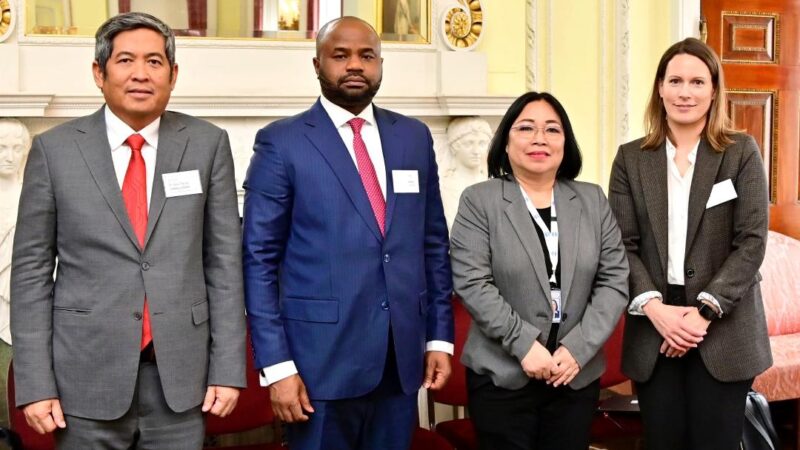ASF France Holds Stakeholders’ Roundtable Meeting On Human Rights In Abuja

As part of its activities to mark the International Human Rights Day 2021, Avocats Sans Frontières France in Nigeria convened a stakeholders’ roundtable meeting on Human Rights in Abuja on the 8th of December 2021.
The convening provided an opportunity for stakeholders in the human rights sector in Nigeria to deliberate on key issues and proffer solutions aimed at improving the enjoyment of human rights in the country, a statement signed by Angela Uwandu Uzoma-Iwuchukwu, Country Director, ASF France Nigeria noted.
The roundtable which was themed “#EndSARS: The Role of CSOs in Driving Police Reforms” was aimed at exploring methodologies for driving police reforms in the aftermath of the #EndSARS, a nationwide protest targeted towards ending human rights abuse by the Police in Nigeria.
The roundtable meeting was organized under the auspices of the “Promoting the United Nations Convention against Torture” (ProCAT) project with the financial support of the German Embassy in Nigeria and the United Nations Voluntary funds for victims of torture.
Constituting the roundtable were representatives from the Nigeria Police, Nigerian Correction Service, Nigerian Security Civil Defence Corps (NSCDC), Nigerian Army (NA), Nigerian Air Force (NAF), the Department of State Security (DSS), National Human Rights Commission (NHRC), Legal Aid Council of Nigeria (LACON), Nigerian Bar Association (NBA), related Civil Society Organisations and media organizations.
Insightful recommendations were proffered to the human rights issues raised. Stakeholders emphasized the need for continuous momentum in the human rights struggle until success is achieved. Some of the insightful recommendations made by stakeholders in response to the human rights issues raised are as follows:
There should be increased collaboration between the CSOs and the security agencies.
The need for strict implementation of disciplinary measures against security officers found guilty of torture, including demotion in rank to serve as a deterrent to other officers.
The need for an effective follow-up on judgements passed in favour of torture victims to ensure and enforce 100 per cent compliance of judgement.
There should be increased efforts towards training of junior officers regarding the use of torture and the implementation of the Anti-torture Act (2017).
The need for the use of database and technology in criminal data retention for better prosecution of offenders and a more efficient justice system.
There should be better cooperation from security agencies during civil unrest and protests as this fall under the fundamental human rights of citizens.
The need to make officers understand that when they torture, they do not act on behalf of the government, they act on their own accord and are fully liable for their actions.
The need to mass-produce and distribute the Anti-torture act to widen its reach and implementation.
The need for rigorous sensitization, seminars, and workshop for state-actors against the use of torture.
There is a need to improve the welfare of police officers to ensure adequate behaviour from the police officers. There is also a need to increase budgetary allocation for the police force to cater for improvement in facilities and technology for better service delivery.
The need to put in structures and initiatives geared towards the effective implementation of the Anti-torture ACT (2017).
Increase the pressure on the AG for the effective implementation of the Anti-torture Act.
The need to empower security agencies with adequate equipment to proper carry out constitutional duties instead of resorting to torture.
The need for psychosocial support for security officers, especially during the onboarding process after graduation from training schools/facilities.
The need for removal of bureaucratic bottlenecks in the modus operandi of the Police Public Complaints & Response Unit (PCRU) for effective action against guilty officers.
The need to reward police units and officers with less torture cases to serve as examples to other security agencies.





